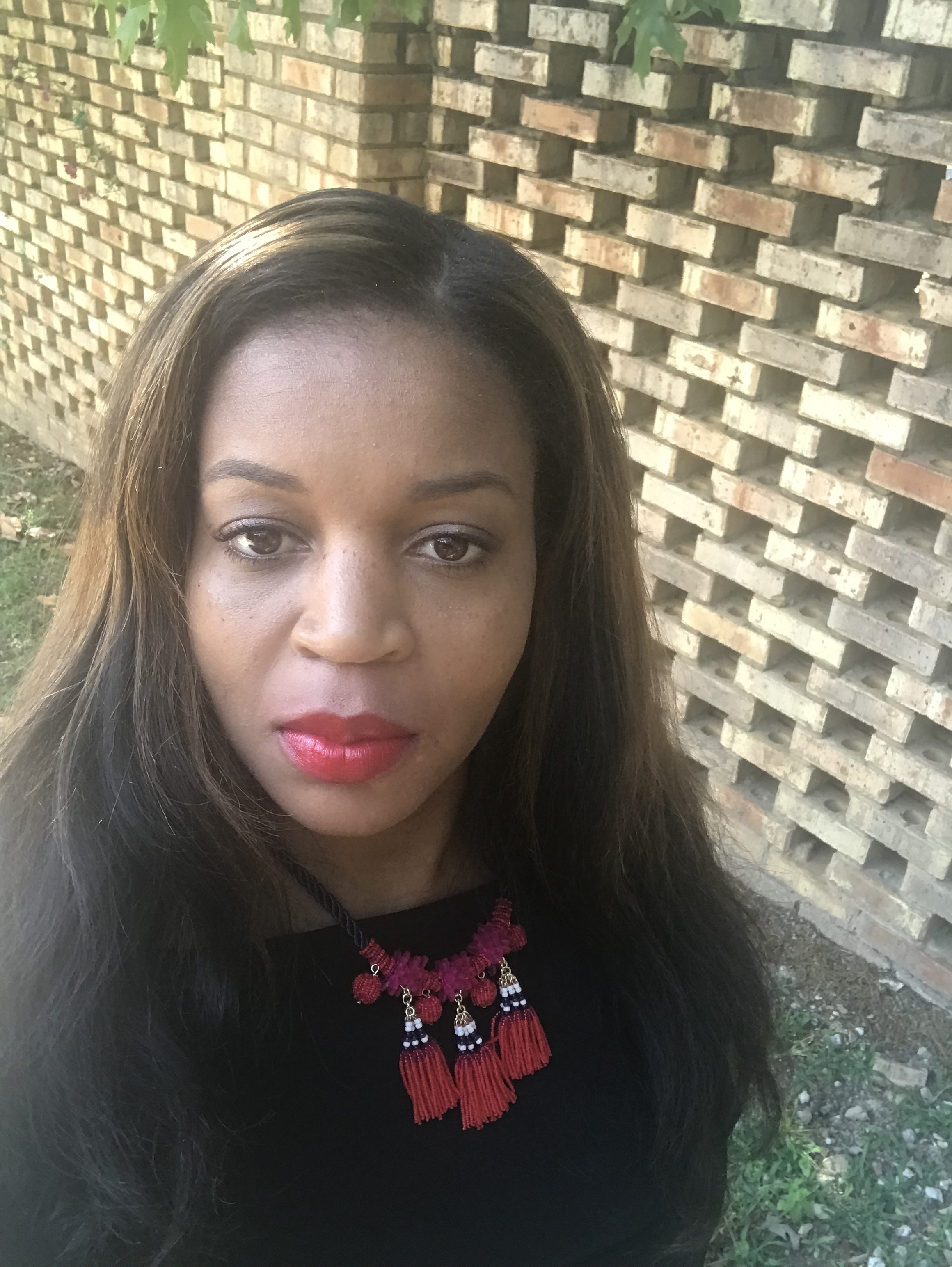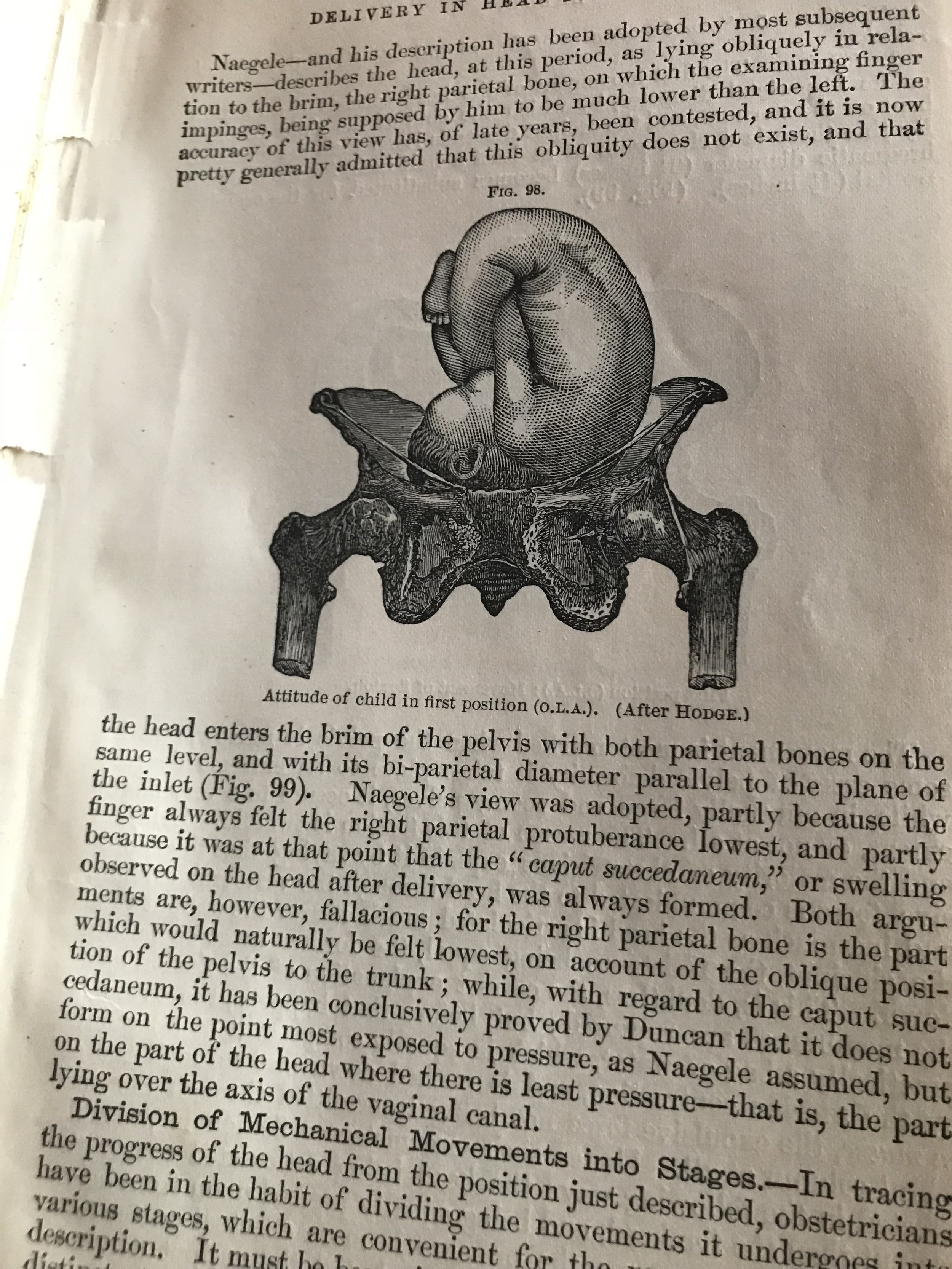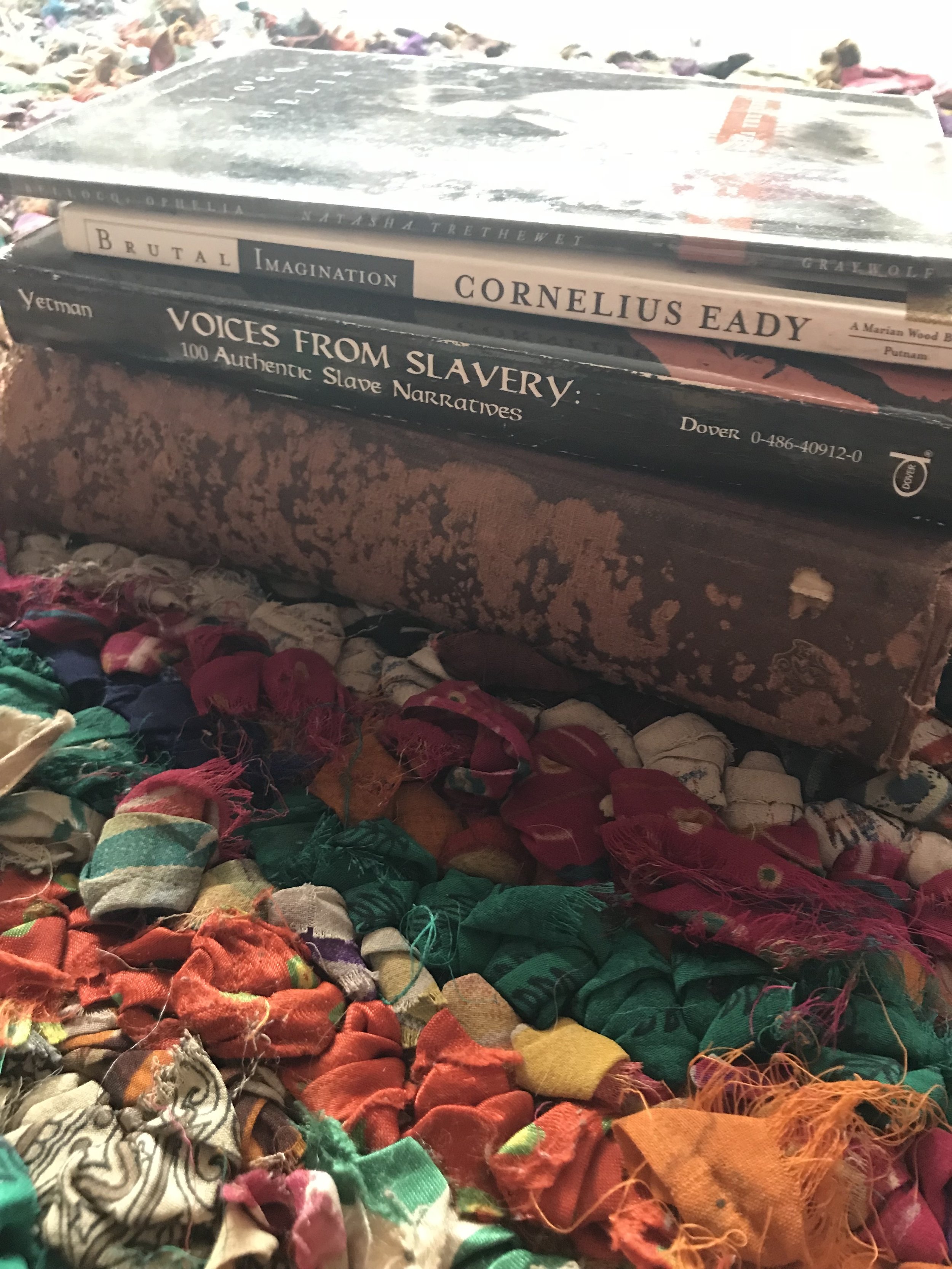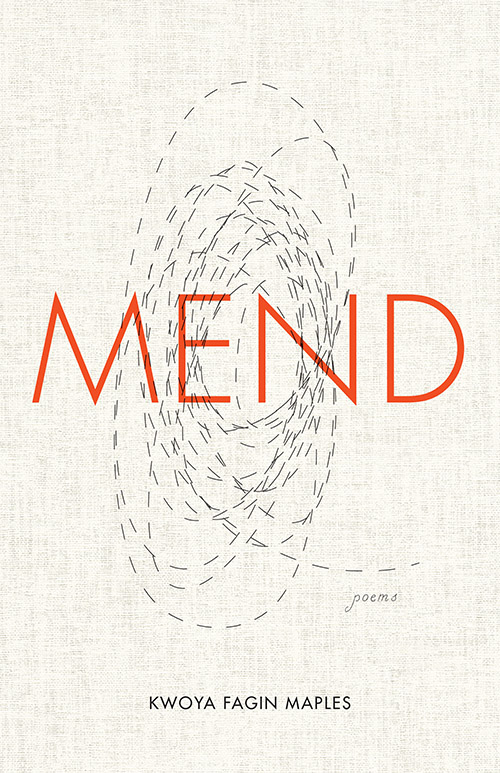A conversation with Kwoya Fagin Maples about "Mend."
(Alina Stefanescu stole a few minutes from Birmingham's own incredible Kwoya Fagin Maples to discuss her poetry collection.)
Your poetry collection, Mend, is forthcoming from The University Press of Kentucky later this year. Can you tell us a little bit about the complex historical subject involved?
Mend is a collection of historical persona poetry written in the voices of women who were considered experimental subjects by Dr. James Marion Sims of Mt. Meigs, Alabama. Between 1845 and 1849, Sims performed experimental gynecological surgery on at least eleven enslaved women.
All of the women— procured from nearby plantations— suffered from fistula. Fistula is a condition that is the result of physical trauma during childbirth. Since fistula typically happens with prolonged labor, it can be safely assumed that most of the babies died. Sims only names three of the women in his notes and autobiography: Anarcha, Betsey and Lucy. He is known as the “Father of Gynecology” and is the inventor of the speculum. There are statues dedicated to him in New York (recently removed), South Carolina, and Alabama.
Tell me about how you made use of poetic forms in order to convey the complicated grief and emotion of Anarcha, Betsy, and Lucy.
Most of the poems are lyrical in nature— they are vivid, fragmented, and narrative. Since the women were often in pain or under the influence of opium, I used this form to convey their cognitive state and emotion. One section of the book is entirely in sonnets.
Initially, I used the sonnet because I wanted to use a form relative to the time period. Later, it proved to be the perfect vehicle. I gave myself a constraint: all of the sonnets were to be directed towards the doctor. The speaker, Anarcha, would finally hold him accountable. This poem, in particular, is surreal at times, and travels between lucidity and hallucinatory images.
Joel Brouwer wrote, "These poems carry an unbearable weight of witness: so much suffering, but also the joy of survival, the survival of joy." Tell me about "the survival of joy,” whether in poetry, in the lives of your characters, or in the present day.
As Toi Derricotte said, “Joy is an act of resistance.” I believe this firmly. This revelation of joy was certainly something practiced by my ancestors. The circumstances experienced by the women in my book experienced were awful, but I thought it important to include moments of joy.
The human experience is complex, no matter the situation. Joy can be a part of any darkness (if you allow it) because joy is not the absence of pain. Joy is a recognition, a choice. There are several joyful memories described in Mend: of catching fireflies, of meeting someone significant for the first time, or recalling the scent of a pie. These women were more than their suffering. They were human, and this is what I want readers to hold when they walk away from Mend.
I am in awe of the way in which you expand the poetics of witness to include these women. What was the most challenging part of bearing witness for you as a poet, but also as a mother, a wife, and a black woman in America?
The most challenging part of bearing witness was knowing this had happened to other human beings. I am an empathetic person by nature, so I felt a lot of hurt, anger, and sadness on behalf of the women I was writing about. As a mother, I was struck by the knowledge that these women didn’t have the opportunity to mother the way I have. There was no baby registry, no time off, no prenatal care. As enslaved women, their experience of matrescence was entirely different from my own.
Uncovering this story as a poet and new mother meant a lot of things. It meant that during pregnancy, I was hyperaware of how medical professionals responded to me as a black woman. On most of my prenatal visits, especially with men, I was extremely nervous. As a new mother in Birmingham, Alabama, I realized my vulnerability, particularly in medical settings. As I continued to research, I became aware of how medical professionals still treat women of color. Currently, black women are three times more likely to die as a result of childbirth than white women— regardless of ability to pay, and regardless of prenatal care. This statistic was found in 2017! Why is that? There are a few answers, but this one is chief among them: prejudice and (scientific) racism are pervasive. For a long time, black people were thought to have a higher tolerance to pain than white people, which is directly connected to why the current opioid epidemic disproportionately affects whites—because black people are prescribed pain medication at much lower rates.
“Joy can be a part of any darkness (if you allow it) because joy is not the absence of pain. Joy is a recognition, a choice. ”
Did you feel closer to any of the personas in this collection? If so, who and why? If not, why?
I felt most connected to Anarcha. Anarcha was seventeen at the beginning of the experimentation in 1845. She endured at least thirty surgeries, according to Sims’ notes. Since she was the first person he experimented on, and the only one he claimed to “heal,” I imagined her as angry—certainly, but also wise, knowing and aware. It is her voice I searched for the most while writing. Again, the sonnet corona I referenced above is written in her voice. She directly confronts the doctor and speaks on behalf of all the women.
What poets or writers most influenced this collection and the way in which you approached it? Why or how?
Frank X Walker’s book Turn Me Loose was a companion book for me. This is a collection of historical persona poetry written in several voices including the voice of Medgar Evers, his wife, his murderer and even the bullet that killed Medgar Evers. Walker’s creativity, structure and genius on the page is startling. I love how the book is continually engaging.
Cornelius Eady’s book, Brutal Imaginations, was also influential in that there was an imagined persona in the book. I liked the narrative arc and how details were exposed over the course of the story. Other poets who influenced the work were Natasha Tretheway, Michael Ondaatje, among others.
How do you balance teaching, mothering, loving, and living with writing and publishing in the Birmingham community?
I don’t balance. There are times when I’m hyper-focused on one thing, and I think that’s fine. I have the most supportive husband in the world. We both want the best for each other. We have three young children, but we know our career pursuits also give us fulfillment, so we both make sacrifices for each other. I try to make it to as many Birmingham writing events as I can, but my lifestyle is such that I have to pick and choose. I want the writers in my community to feel supported, so I try to give that support in a variety of ways, whether it’s showing up, pep talks on social media, or reading manuscripts people send my way.
I look for ways to spend valuable time with writers while also acknowledging my roles as a mother, wife, writer, and instructor. It’s not easy, but I try to make good choices –overall— in how and where I spend my time.
I appreciate your honest on the work-life balance equation. What organizations and resources would you suggest to other writers in Alabama looking for support, encouragement, and development? What organizations have helped you and how?
Cave Canem is an incredible experience, but there are so many more options now for poets of color. I’d recommend The Watering Hole and Kundiman.
The organization that has made the most impact on my life recently, however, is See Jane Write. See Jane Write (SJW) is a Birmingham organization for women who write and blog. Being a part of SJW has taught me the business side of writing. As a writer, I’m an entrepreneur, and that was something I had to come to understand. So often as women we are trained not to self-promote, but understanding branding and marketing as a writer is crucial. I’m an introvert, so this doesn’t come naturally, but it’s necessary. SJW has given me the tools, resources, and confidence to pursue being profitable as a writer.
Would you say this book is “teachable” for academic settings?
Absolutely. One of the sections from Mend I’m most proud of is the sonnet corona. It’s a modified sonnet, but the syllabic count is spot on (10 or 11 syllables per line). I made an effort to have a narrative arc, and it’s a response to Harriet Washington’s concept of “the medical plantation.” Harriet Washington wrote a book called Medical Apartheid that details several cases of medical experimentation on black bodies from slavery until now. There were many cases of medical experimentation during slavery. What yielded from these situations was medical advancement, fame, and money for the doctors. As a result, Washington describes these spaces as “medical plantations.” The title of the sonnet corona is “What Yields.”
This book relied on historical research and references an actual case in medical history. It can be incorporated into women studies, medical ethics, history, English and creative writing courses.
What final words do you have for Alabama writers, readers, and dreamers?
In order to move forward, we have to understand our history. It’s difficult to thoughtfully consider our past, but we perpetuate ignorance when we don’t see or value the humanity of the people we are considering. My hope is that people don’t distance themselves from the content of this book, but rather see how they are a part of this story. We should all question our role in the continuing story of equality in America.
Thank you so much Kwoya for sharing--and for writing such a magnificent book.
Mend can be pre-ordered online from the University of Kentucky Press website.
Learn more about Kwoya from her website or twitter, where she tweets as @kwoyamaples.
To Bear Witness (a poem from Mend)
Delia held my hand all through it
my nates splayed open
and like the butcher’s meat,
I belonged to that steel.
The doctor standing
in the triangle between like
he always was.
He is the air there
and he will separate the day from the night.
Then the pain
until I see the cow with no head.
I swear it was just as real as you and me;
it walked in this here room hooves clicking,
a black soot hole for a neck.
And now, Delia squeezes my hand to the bone
like the cow is hers,
like it is her spine on the table,
her chattering un-intelligibles
and writhing
all through it.





